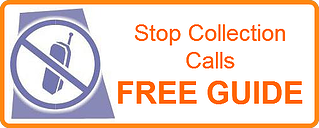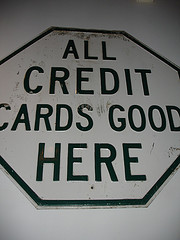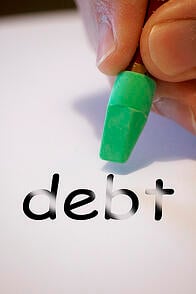
When you’ve got negative credit accounts all over your credit report, you’re going to want to do all you can to Repair Your Credit – especially if you believe the information reported is inaccurate.
Luckily, the credit bureaus understand that not all of the information they report is always correct, so they give you the option to dispute any credit account you think looks wrong via regular mail.
All 3 have since expanded their dispute departments to cover requests being made online, so you don’t even have to worry about your queries getting lost in the mail, or having to wait longer than a month for a response. Simply sign onto the appropriate credit bureau’s website, check off which accounts you want disputed, leave an explanation for why you’re disputing the account and you’re done.
When something seems too good to be true, it usually is. This is no excption.
The problem with keeping your disputes online only is that the process is so overly simplified that it almost completely cuts out the follow-up options you normally have available to you had you sent your dispute letters via regular mail. Problems with the online-only approach don’t stop there; we also recommend you keep your disputes to regular, certified mail because:
You don’t get a copy of the dispute
Again, the credit bureaus’ online dispute page simply consists of you disputing an account, leaving a note on why you’re disputing it, and pushing Submit. Once that’s done, you’re given no physical copy of the disputes for your records – something that can be easily avoided by sending the disputes via certified mail, and keeping copies for yourself.
You give up some of your rights by disputing online
If you take the time to read the Terms & Conditions of using the credit bureau’s online dispute service, you’ll see that by doing so, you’re entering into a binding arbitrary agreement with the credit bureaus that prevents you from taking them to court over your disputes.
If it comes down to it, you don’t want to give up your right to take the credit bureaus to court should they persist in reporting information that you know is inaccurate.
Once you have reviewed your credit report for innacuracies, chances are pretty good that there will be some debts left that you actually do need to re-pay. There are great programs available to you such as Debt Consolidation and Debt Settlement that can help you eliminate your debt quickly and save you money.
Our Solutions Specialists can help you decide which program fits your situation best. Give us a call!
1-877-492-4109
photo by: stephanie in love




 Dealing with Debt
Dealing with Debt








 Know about CONTROLLING YOUR DEBT!
Know about CONTROLLING YOUR DEBT!

 Have you heard of Credit Card Skimming? No? Well, neither had I until today and yet I was a victim of it several months ago. I've often wondered how someone was able to clone my card and go on a shopping spree at the Home Depot. Today I finally got my questions answered.
Have you heard of Credit Card Skimming? No? Well, neither had I until today and yet I was a victim of it several months ago. I've often wondered how someone was able to clone my card and go on a shopping spree at the Home Depot. Today I finally got my questions answered. 








